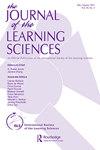自学提高了讨论的学习效果
IF 3.9
1区 教育学
Q1 EDUCATION & EDUCATIONAL RESEARCH
引用次数: 1
摘要
高等教育中的学术学习需要多种多样的活动,如阅读、复习和讨论。然而,关于这些活动结合对学习结果的影响的研究相对较少。在这项研究中,我们调查了韩国一所名牌大学的自学和讨论的结合。方法本研究比较了三个组的两部分教学顺序:观看视频讲座(LD)和自学(SD)组,都是学生主导的讨论,然后在观看视频讲座(LR)组进行复习。我们比较了逐字、意译和转移项目的测试结果。我们还对讨论中的对话进行了深入分析。在三个独立的实验中,我们发现讨论组的得分明显高于复习组。在两个讨论组中,SD组表现优于LD组。对对话的分析表明,自学从学生那里激发出比讲课更积极、更有成效的内容,从而导致更好的表现。我们的研究结果表明,自学可以显著提高讨论的学习效果。本文章由计算机程序翻译,如有差异,请以英文原文为准。
Self-study enhances the learning effect of discussions
ABSTRACT Background Academic learning in higher education requires diverse activities such as reading, reviewing, and discussion. However, there are relatively few studies on the effect of the combination of these activities on learning outcomes. In this study, we investigated the combination of self-study and discussions at a selective Korean university. Methods The present study compared the two-part instructional sequence of three groups: watching a video lecture (LD) and self-study (SD) groups, both followed by student-led discussions, and reviewing after watching a video lecture (LR) group. We compared test results using verbatim, paraphrased, and transfer items. We also carried out in-depth analyses of dialogs in the discussions. Findings In three separate experiments, we found that the discussion groups scored significantly higher than the review group. Moreover, the SD group performed better than the LD group of the two discussion groups. Analyses of dialogue suggest that self-study elicited more active and productive content from the students than lectures, leading to superior performance. Contribution Our results indicate that self-study can significantly enhance the learning effect of discussions.
求助全文
通过发布文献求助,成功后即可免费获取论文全文。
去求助
来源期刊

Journal of the Learning Sciences
Multiple-
CiteScore
10.70
自引率
5.30%
发文量
17
期刊介绍:
Journal of the Learning Sciences (JLS) is one of the two official journals of the International Society of the Learning Sciences ( www.isls.org). JLS provides a multidisciplinary forum for research on education and learning that informs theories of how people learn and the design of learning environments. It publishes research that elucidates processes of learning, and the ways in which technologies, instructional practices, and learning environments can be designed to support learning in different contexts. JLS articles draw on theoretical frameworks from such diverse fields as cognitive science, sociocultural theory, educational psychology, computer science, and anthropology. Submissions are not limited to any particular research method, but must be based on rigorous analyses that present new insights into how people learn and/or how learning can be supported and enhanced. Successful submissions should position their argument within extant literature in the learning sciences. They should reflect the core practices and foci that have defined the learning sciences as a field: privileging design in methodology and pedagogy; emphasizing interdisciplinarity and methodological innovation; grounding research in real-world contexts; answering questions about learning process and mechanism, alongside outcomes; pursuing technological and pedagogical innovation; and maintaining a strong connection between research and practice.
 求助内容:
求助内容: 应助结果提醒方式:
应助结果提醒方式:


